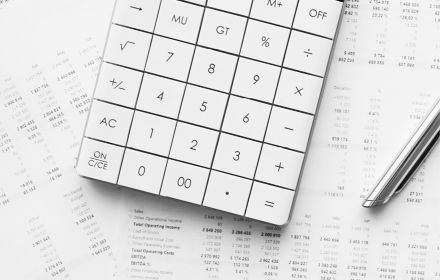At the end of last year, the long-awaited Circular 2021/C/114 on the VAT exemption for medical professions and hospitals was published. This circular contains clarifications on the changed scope of the so-called "medical VAT exemptions”. The new legislation took effect on 1 January 2022.
This amended legislation came about as a result of a ruling by the Constitutional Court in 2019, which overturned several aspects of these medical VAT exemptions of Article 44 §1 and §2, 1° a) of the VAT Book. The scope of these exemptions is now more in line with the view of the European Court of Justice.
Modified personnel scope "medical professions exemption"
First of all, the personnel scope (read: the practitioners who can rely on this exemption) of this exemption has been expanded. From now on, in addition to the (para)medical professionals for whom a legal framework exists (category 1), the practitioners of other medical and paramedical professions, for whom no legal framework exists, can also make use of the medical exemption (category 2). However, in principle, these second category practitioners will only be able to do so if they are certified by an institution recognized by a competent authority of the country in which that institution is located. This certification should declare that they have the necessary qualifications to provide medical care of a sufficiently high level to be comparable to that provided by first category practitioners. The circular states that this second category consists of psychological consultants, psychomotor therapists and medical or specialized foot care providers.
Modified material scope of "medical professions exemption"
Secondly, the material scope of this exemption has been reduced. According to the new rules, this VAT exemption can only be applied if the services provided have a "therapeutic purpose". The circular explains that the aforementioned condition implies that "the services must be aimed at the diagnosis, treatment and, as much as possible, cure of diseases or health problems". The circular further states that the exemption also applies to medical services performed for purposes of prevention, and also in cases where the person being examined or otherwise undergoing preventive medical intervention, does not appear to have a disease or health problem. Moreover, it is up to the medical professional to judge in good conscience whether or not a medical treatment serves a therapeutic purpose.
Amended material scope of application "hospital exemption"
What has been stated above regarding the notion of "therapeutic purpose" applies in full to the services of hospitals, psychiatric institutions, outpatient clinics, private clinics and dispensaries.
Specifically for the so-called "hospital exemption", it should be noted that this exemption extends (in addition to the therapeutic or non-therapeutic health care of the patient only to the so-called "closely related to hospital and medical care supply of goods and services”.
The circular provides a non-exhaustive list of acts that do or do not qualify as "closely related acts”. For example, it explicitly states that the following services do not qualify as "closely related acts": the provision of internet, a television or a telephone for a fee in a patient's room, the provision of a parking space for a fee to the patients, visitors to or employees of the hospital, hairdressing or manicure services performed for a fee for patients during their stay in the hospital, except for onco-aesthetics, the operation of a drinking or eating establishment (even if patients use it), etc. It goes without saying that this view has a major impact on the "hospital invoice" and the VAT status of hospitals and similar establishments. Until 31 December 2021, the aforementioned services were in principle exempt from VAT (based, among others, on various published examples of administrative scope).
Exemption scheme for small enterprises
For certain professionals affected by the new rule, it may be possible to neutralize the actual impact by using the exemption scheme for small enterprises insofar as the non-therapeutic acts remain below the annual threshold of 25,000 euro.
Right of deduction and revision of (historic) VAT
Given the fact that the new rules change the VAT status of many taxable persons e.g. professionals, hospitals, etc. (fully exempt taxable persons become fully or mixed taxable persons (subject to the application of the rules on small enterprises)), the Circular logically also contains a section devoted to the right of deduction and the (positive or negative) adjustments that must be made in the context of the amended rules. This section is essentially a repetition of known rules and principles.
Entry into force, transitional rules, tolerances and control
The new VAT exemptions took effect on 1 January 2022. The circular provides for transitional measures for some special situations. Furthermore, the Circular also contains some scope provisions regarding the submission of VAT returns. Finally, the Circular provides that due to the health crisis, the Minister of Finance has requested the VAT Administration, for the year 2022, in the context of possible fiscal monitoring of the correct application of the above-mentioned new provisions, to adopt a flexible attitude in the event of an apparently unintentional error by a professional.



